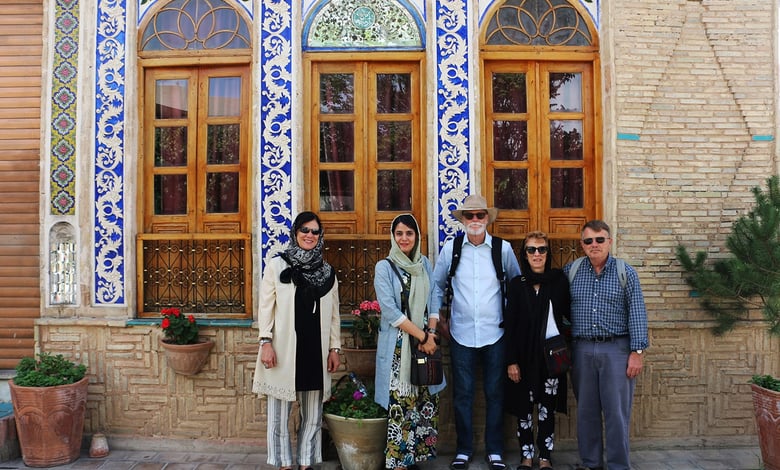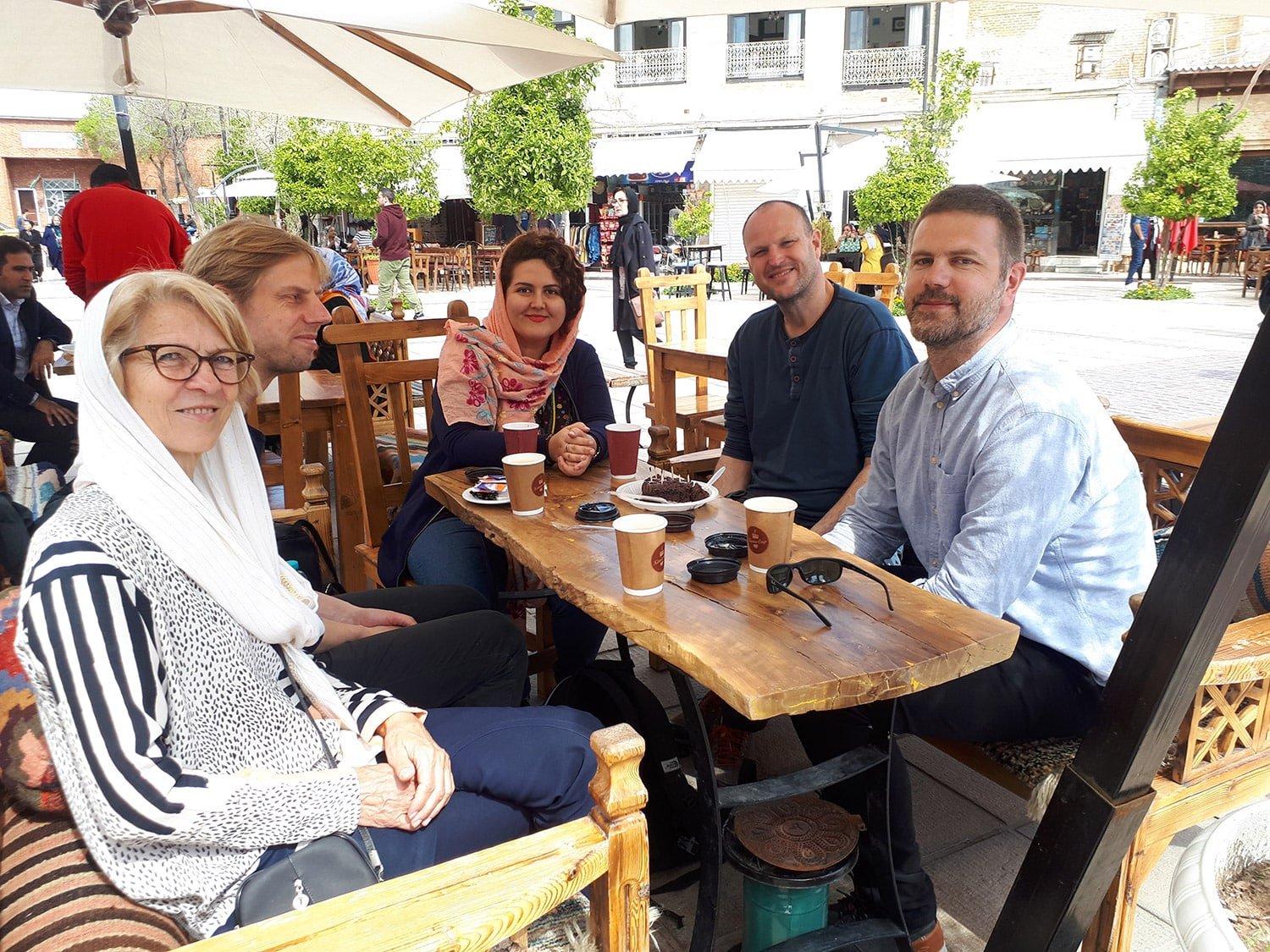
As a traveler to Iran, you can expect a warm and sincere welcome and hospitality from the Iranian people, who have their roots in the ancient Iranian culture. It is interesting to know that hospitality varies in different regions of Iran, depending on the culture and customs of the people in each region.
A common phrase shared by all Iranians about guests is “guest is friend of God”. Therefore, it does not matter whether the guest is from the same ethnic group or a passing tourist. We Iranians warmly welcome our guests and strive to create a pleasant environment for them.

In fact, hospitality is of great importance in the religion of Islam, which is the official religion of the Iranians, and it is considered virtuous with divine rewards.
OrientTrips Experiences
Contents
Book an Experience
Accordingly, in Iran we have religious and non-religious celebrations and occasions such as the tradition of visiting and being visited by relatives on the occasion of the Persian New Year (Nowruz), Yalda night or the religious festival of Ghadir, through which we can gather and visit each other more.
Here are some important points regarding Iranian manners in dealing with guests:
Iranian etiquette in communication with foreign tourists
When interacting and conversing with foreign tourists, Iranians are generally welcoming and hospitable. If an Iranian asks you questions about your country or travel, it is a sign of curiosity and they want to create a social atmosphere and chat with you. They have no intention of interfering with your business.

Another important point to join and initiate social interactions is to be aware of Iran’s religious restrictions, which can potentially lead to misunderstandings. For example, if you extend your hand to say hello and the person in front of you is of another sex, avoid reaching out, don’t get upset or nervous.
In Islam, physical contact is not allowed between men and women who are not related by blood, and if you visit an Iranian house and the woman wears a headscarf, it is because of religious beliefs. their religion. The important point is that these customs and rules do not compromise the warm and friendly manners of Iranians.

They always enjoy socializing with you and welcoming you into their home. The more you eat and enjoy their food and the spread they give you, the happier they will be.
Level of English proficiency of Iranians
Although a significant number of Iranians have basic English skills, there can still be language barriers, especially in rural and remote areas. However, rest assured that the Iranians will always find a way to contact you.

With their warm smiles and sincere attitudes, they show their deep hospitality. Furthermore, you can improve your communication and show your interest in their culture by getting acquainted with some common phrases in Persian (Farsi), the official language of Iran.
Taarof, an ancient Iranian tradition
Simply put, taarof can be described as a persistent offer or invitation from Iranians for you to accept something and it is customary for you to initially decline the offer as a courtesy even if you agree to the offer or invitation.

The person will then repeat their offer, and eventually, if you really like them, you’ll accept them. Iranians are generally happy that their taarof is finally accepted. This custom has become less important among the younger generation, but it persists. Therefore, if you make an offer to an Iranian and he initially refuses, he can join the taarof and you can insist a little more.
Tea, a popular Iranian drink
The current popular drink of Iranians is tea (chai), which can be found in almost every household. For now, coffee has found its place among many Iranians, but tea is still the favorite drink of Iranians, whether foreign or Iranian brands.

We recommend trying Iranian tea. As you may know, the official religion in Iran is Islam, so drinking alcoholic beverages is not common or widely accepted.
You will not find alcoholic beverages in shops and streets, and their consumption is prohibited. It is interesting to know the drinking custom of Iranian hospitality, while entertaining the host often drinks his drink after the guest as a sign of respect.
Here are some interesting points about the customs and traditions of hospitality of some Iranian ethnic groups:
Hospitality of the Bakhtiari
The Bakhtiari, who live as nomads and live in the countryside or in the city, have a particular belief in hospitality. They believe that even if the enemy knocks on your door, don’t push them away. Instead, forgive them as a sign of respect and sincerely greet them with sincerity and kindness.

They even hide any discomfort or dissatisfaction they may have and show a playful attitude in front of their guests. Interestingly, the Bakhtiari are not only responsible for hosting their guests, but also prioritizing the physical and mental health of their guests.
Hospitality of the Lur
The Lurs are known for their warm hospitality, which is considered part of their social customs. It is interesting to know that they reserve the best place in the house for their guests. Hospitality to guests often involves serving them local and popular dishes, often meat-based, such as Luri meat broth (Ābgusht-e Luri) made with roast beef or chicken.

It should be noted that if you are a vegetarian, they will welcome you with delicious local vegetarian dishes. The people of Lorestan attach great importance to the happiness and enjoyment of diners for the taste of food.
Kurdish hospitality
Interestingly, the Kurds show a degree of care and respect for their guests by sacrificing an animal such as a cow or sheep and preparing the meat to cook and serve the guests. These friendly communities are willing to sacrifice their lives to ensure the health and safety of guests as long as guests stay at home.

Baloch Hospitality
The Baloch have a delightful tradition called “Miarajli” (meaning shelter hospitality). This means that if anyone, innocent or guilty, seeks refuge with Baloch out of fear for their life, the host will accept the refugee while taking precautions for their safety. They will do everything they can to help the individual with their problem and as long as the danger persists, guests can stay home.
Turk Hospitality
Turkish ethnic groups have a tradition of dressing in splendid costumes in front of guests and serving them the best food. Ensuring that customers are not hungry is very important to Turkish people and their priority is to provide a satisfying customer experience with a variety of dishes. Treating family members with respect in front of guests is a characteristic of the Turkish people. For example, if your child is naughty, they won’t raise your voice to you in front of guests.
It seems that based on the brief introduction to Iranian hospitality, a trip to Iran will give you a unique experience. You can explore different ethnic groups around the country, enjoy the hospitality of the Iranian people and interact with them.
Moreover, you can enjoy delicious Iranian food and enjoy delicious Iranian drinks. We recommend that you learn about the rich culture and traditions of the different ethnic groups in each region and get acquainted with their customs. We predict that your trip to Iran will be filled with memorable experiences and warm, sincere relationships.





